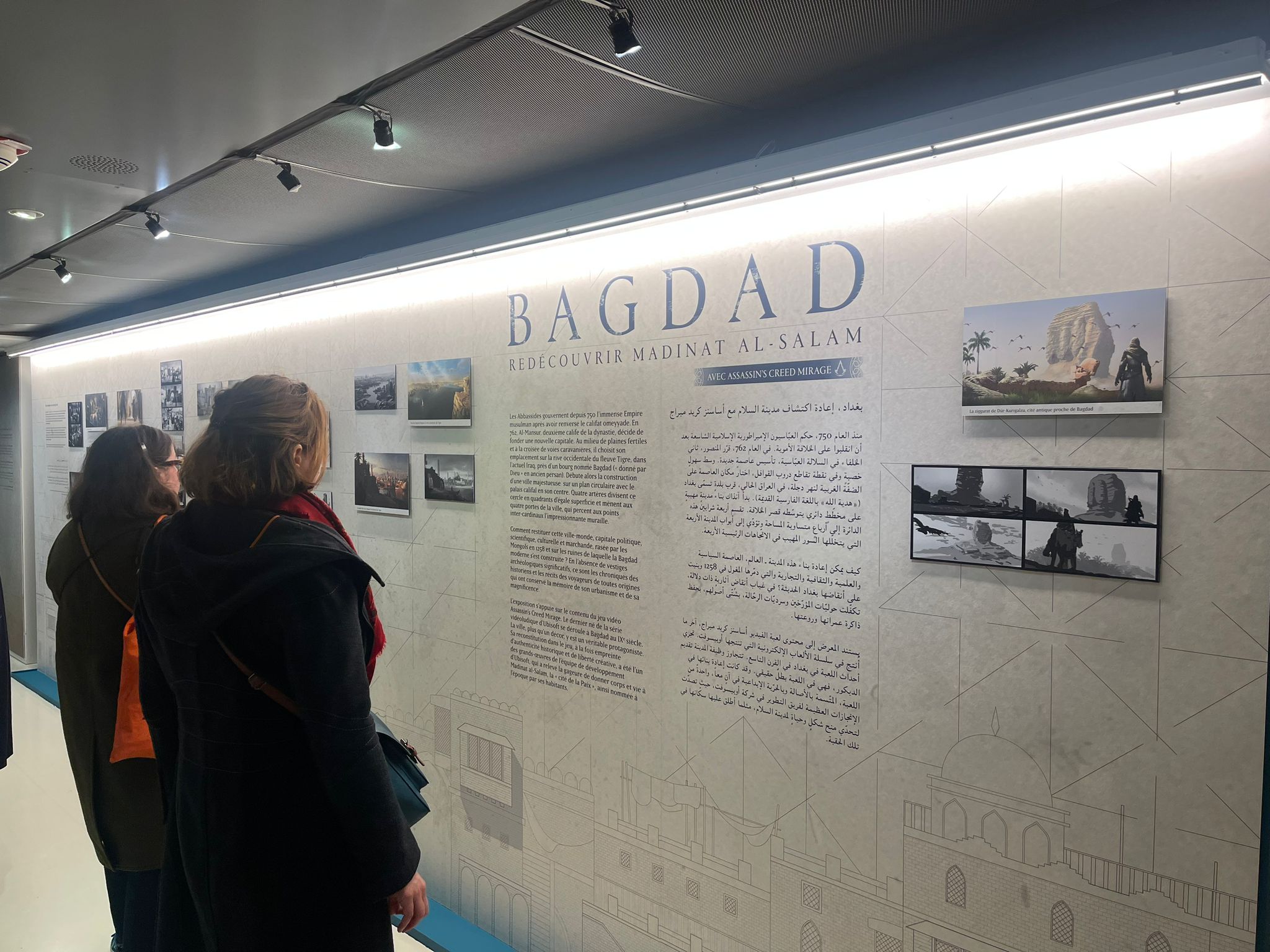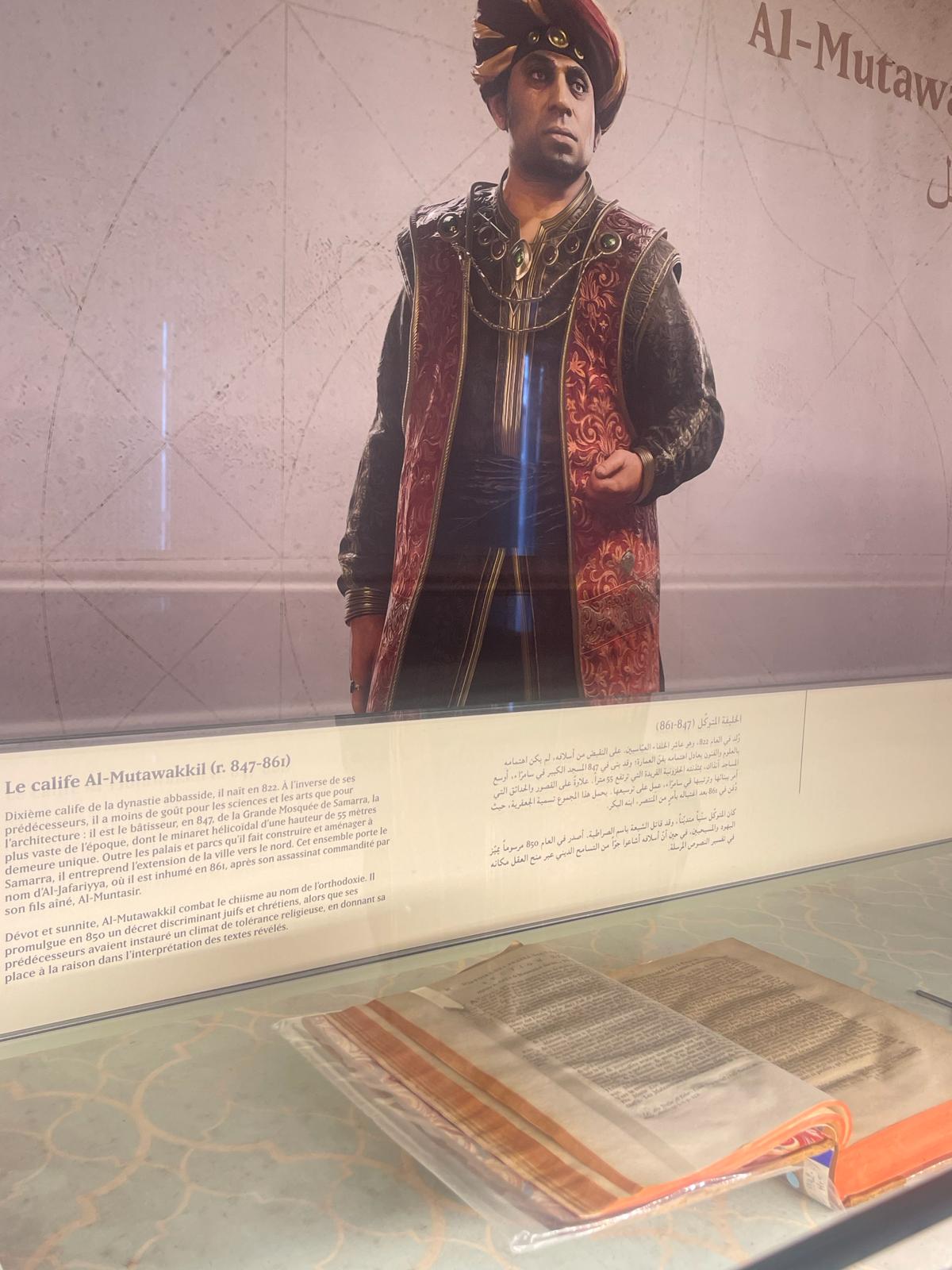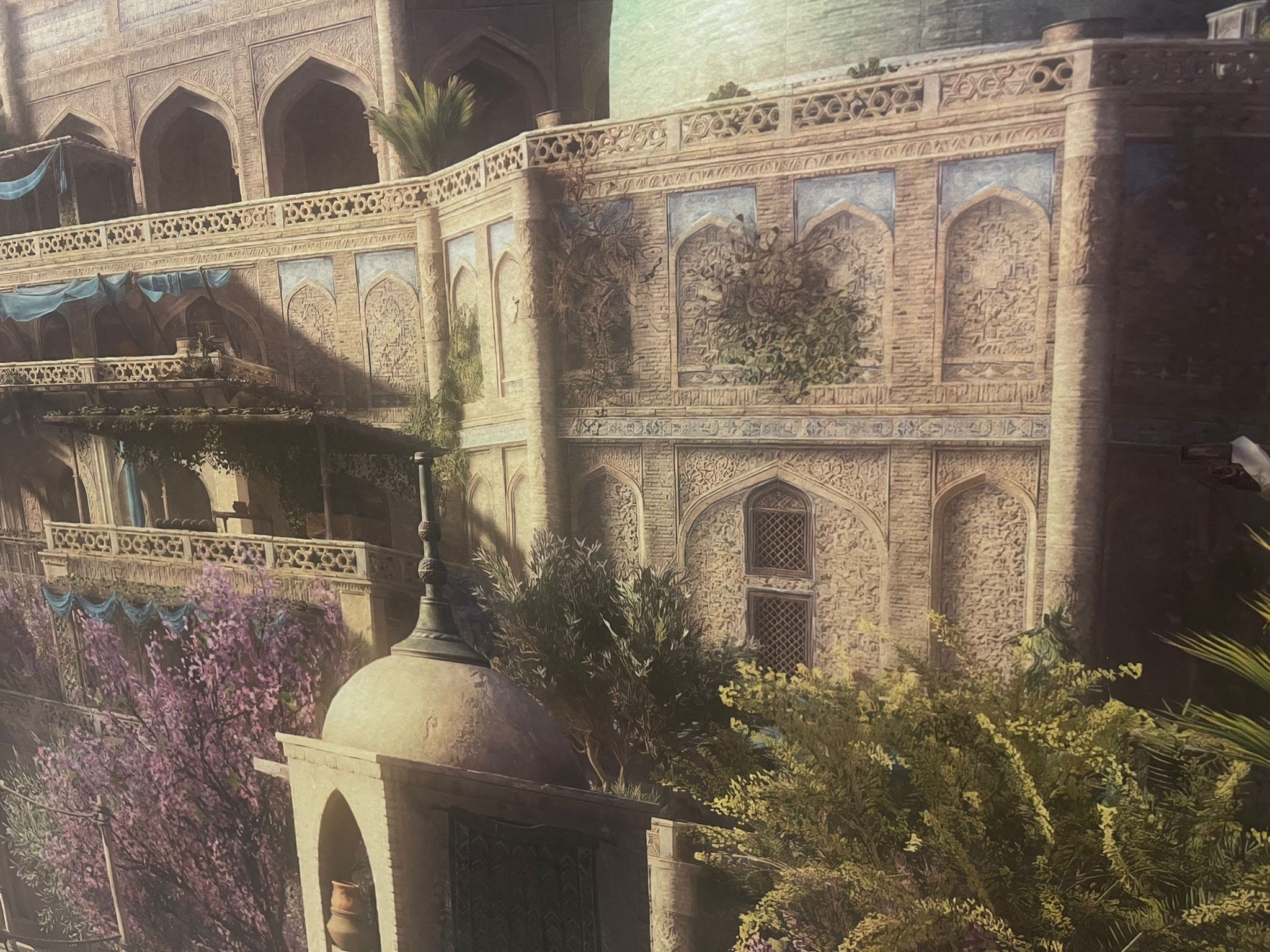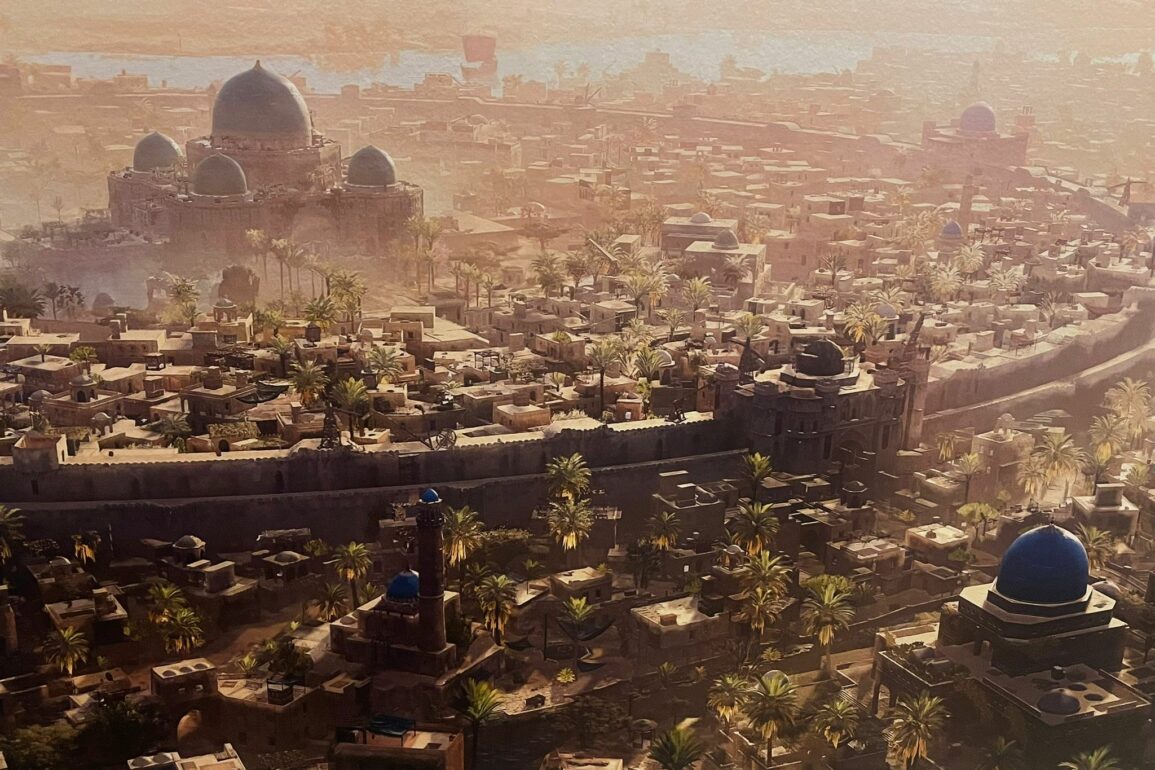For the first time in its history, the Arab World Institute in Paris has mounted an exhibition in collaboration with a video game publisher, capitalising on the huge success of Ubisoft’s latest game, Assassin’s Creed Mirage.
Following the release of Ubisoft’s latest video game, Assassin’s Creed Mirage, on October 2023, the Arab World Institute organised an exhibition preview on February 27, in collaboration with the French video game publisher. The exhibition entitled « Baghdad: Rediscover Madinat al-Salam, with Assassin’s Creed Mirage » will be open from February 28 until November 10, 2024 at the Museum of the Arab World Institute in Paris.
The exhibition features Assassin’s Creed Mirage concept arts displayed alongside historical figures and artefacts. Eric Delpont, head of the Museum department at the Arab World Institute and one of the exhibition curators said:
I think it’s going to be a real surprise, because we’ve never done anything like this inside the museum, and this type of staging is a first for us.
The uncommon collaboration between a museum and a video game publisher promises to attract both video games and history aficionados. Assassin’s Creed, one of Ubisoft’s best-selling and most popular video games, is a series of action-adventure video games that intertwines fiction with real historical events.

The game takes place in the middle of the ninth century at the peak of the Abbasid Empire. Built in 762 during al-Mansur’s caliphate, the « Round City » never ceased to arouse curiosity and the wildest fantasies. Jean-Luc Sala, creative director at Ubisoft Bordeaux said:
We’re a time travel agency. We’re going to offer people the chance to travel back in time and visit different civilisations.
To reconstitute the ninth-century Baghdad, Ubisoft partnered with The David Collection, The Khalili Collections, Shangri La Museum of Islamic Art, Culture and Design, and the Arab World Institute in Paris.
After a successful partnership in 2018, Ubisoft asked the Arab World Institute to provide them with objects linked to Abbasid Baghdad to be included in a feature of their new game, entitled « History of Baghdad ». Assassin’s Creed Mirage takes place around 860 towards the end of al-Mutawakkil’s caliphate and founder of the Great Mosque of Samarra in 847.

The real difficulty was recreating the « City of Peace » (Baghdad) with very few sources as it was completely destroyed by the Mongols in 1258. Eric Delpont, head of the Museum department at the Arab World Institute said:
It’s a city that we know only through written sources – the chronicles of historians, geographers, and accounts of travellers, but we have nothing concrete to lean on. We didn’t just want to present the concept arts. What interested me was showing the different stages in the reconstruction of Baghdad.
First released in 2007, Assassin’s Creed Mirage is the thirteenth game in the series. Ubisoft is known to have worked extensively with historians and experts to reconstitute the various historical sites it features in its Assassin’s Creed series, but historical accuracy can sometimes give way to certain anachronisms.
« In one scene, for example, we see an interior with zellij panelling (a mosaic tile style) but, zellij didn’t exist at that time, and it’s a North African style, it’s not Middle Eastern. You can also see some mashrabiya (wooden lattice windows), but the mashrabiya depicted are traditional Egyptian windows, they were not common in ninth-century Baghdad » said Mr Delpont.

Jean-Luc Sala, creative director at Ubisoft Bordeaux, explains this choice of creative freedom: « When we didn’t have any information, we took some elements from other nearby places, such as the city of Samarra. As soon as we had the information, we tried to get as close to reality as possible. » Jean-Luc Sala, creative director at Ubisoft Bordeaux said:
To avoid reproducing stereotypes, I watched a Qatari TV series that displayed historical events. I took several screenshots that I sent to my team in Bordeaux. If the Arab world is using these stereotypes in its TV series, it means that we had the green light to do the same.
Both representatives at Ubisoft and the Arab World Institute aimed to challenge stereotypes associated with this period of the Abbasid Empire, but also with the Arab World. « Our goal was to present the Arab World as something more than just a land of conflicts, » said Jean-Luc Sala.
By showcasing the diversity within Madinat al-Salam, which was once home to a varied population of Muslims, Jews, and Christians, and featuring prominent figures such as doctors, geometricians, mathematicians, grammarians, and astronomers, the exhibition intends to present a rich and accurate overview of the round city of Baghdad.
The game is entirely available in Arabic, from the interface to the audio, to offer players full immersion. Ubisoft even called on Jordanian actor Eyad Nassar, for the voice of Bassim, the main character of the game. Jean-Luc Sala, creative director at Ubisoft Bordeaux said:
We’re happy because we’ve received lots of messages, in particular from players in Iraq, who have thanked us for representing them. And that’s perhaps the thing we’re most proud of with our Ubisoft team in Bordeaux.







